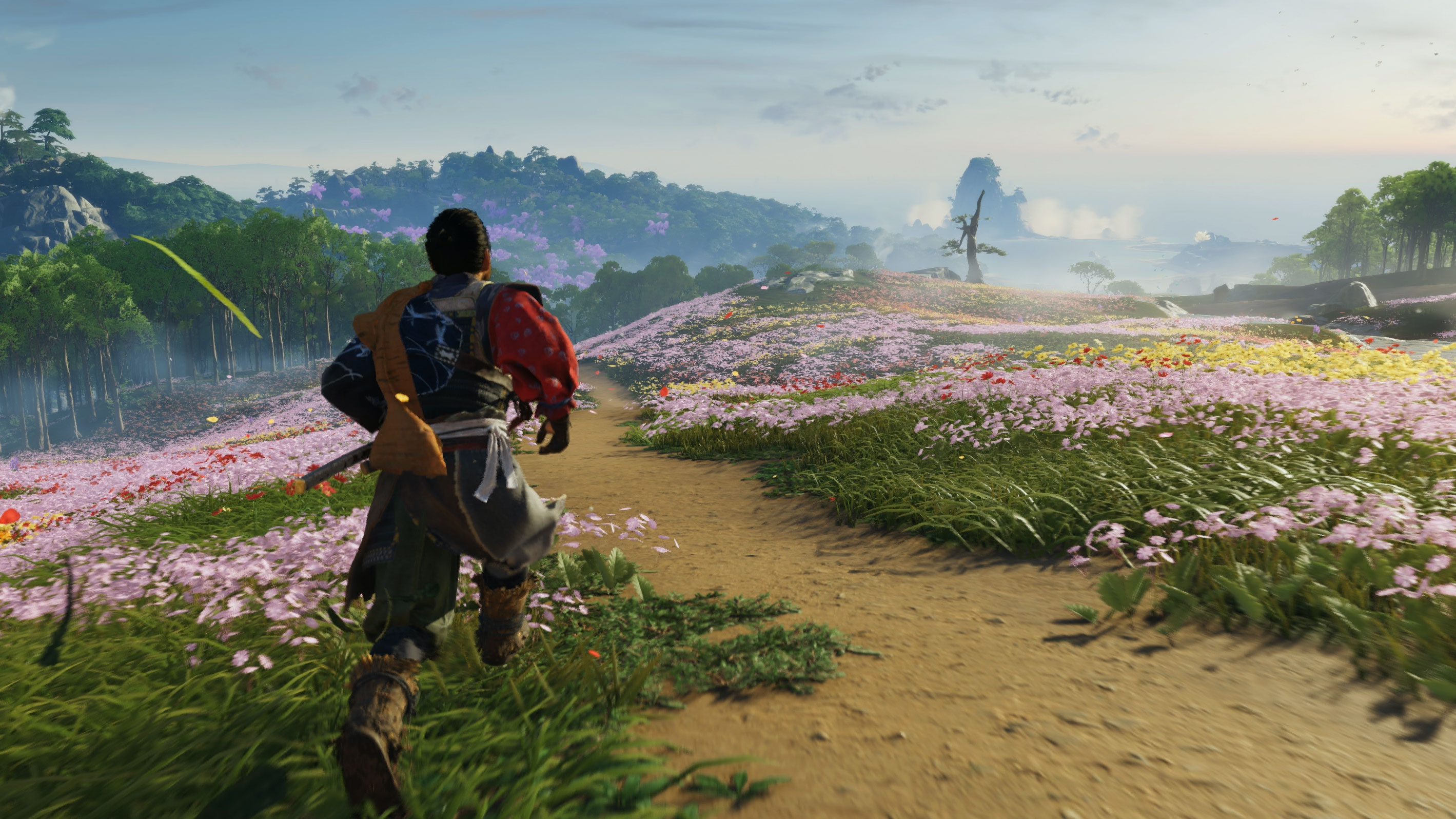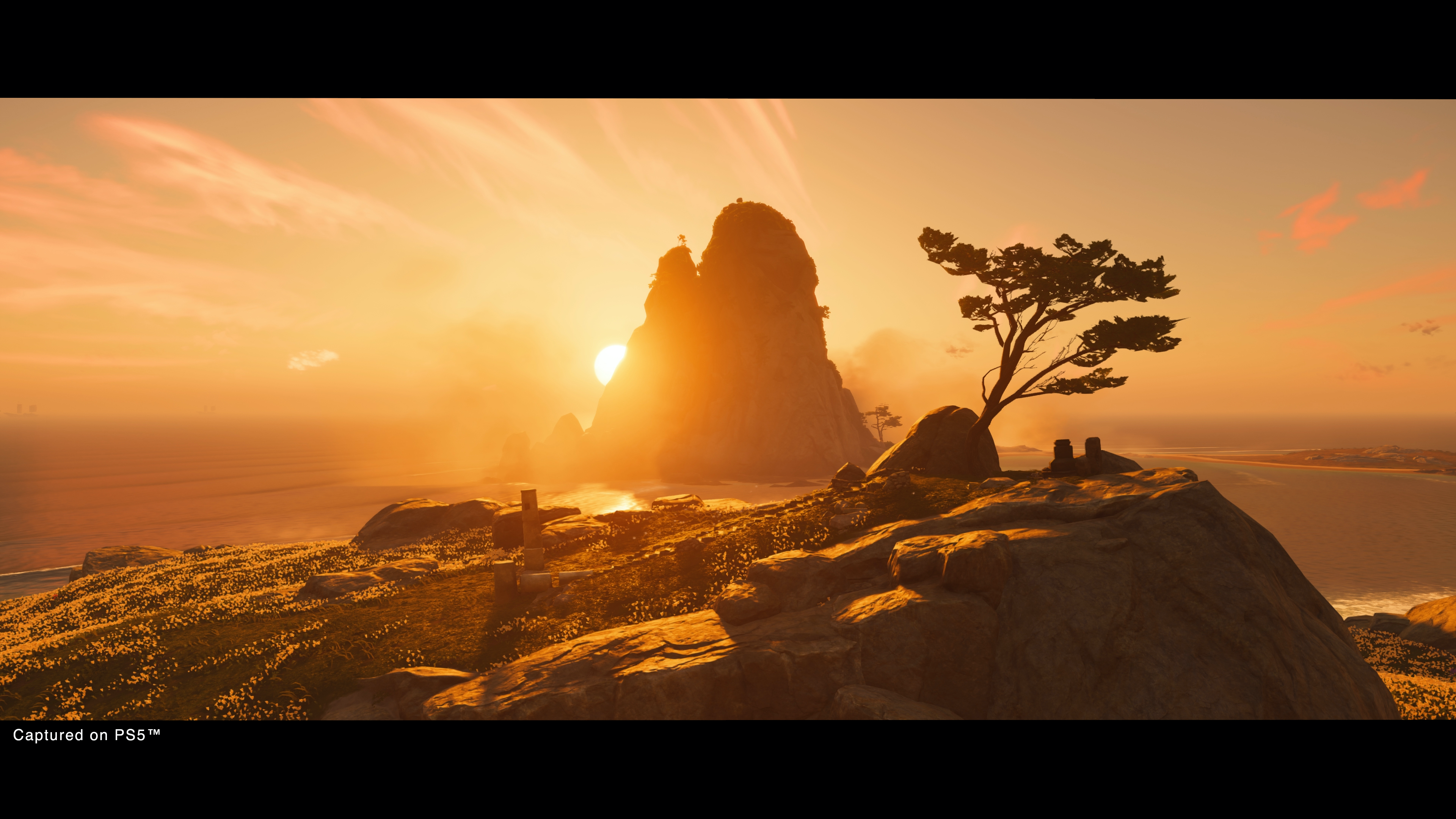Pet the monkey, skewer the invader: Ghost of Tsushima DLC is an excellent dose of more-of-the-same
A welcome return to feudal Japan for Ghost of Tsushima Director’s Cut

It’s time to pack your smoke bombs, dust off your katana, and prep your best haikus. The Ghost of Tsushima Director’s Cut is here, bringing next-gen upgrades for PS5 players and a huge new island to explore, no matter what console you’re playing on.
If you’ve played last year’s original release, it is, frankly, more of the same. But when that “same” is being a badass samurai in one of the most beautiful game worlds ever rendered by silicon? Well, domo arigato to the developers at Sucker Punch – we’ll take it.
First up, what’s changed for the PS5 edition? Well, not a hell of a lot if you’ve already sampled the original PS4 game on a PS5, which received a very impressive 60fps patch soon after the PS5’s launch.
- Best PS5 games: the PlayStation 5 games you need to play
- New PS5 games: upcoming PS5 game release dates
- Ghost of Tsushima: Director's Cut locks PS5 features behind a paywall
The PS5 version keeps the 60fps frame rate (along with improved, more consistently sharp dynamic resolution scaling), adds in DualSense controller haptic feedback, delivers 3D spatial audio and speeds up loading times courtesy of the SSD. The next-gen changes are subtle, but that’s not wholly unexpected – Ghost of Tsushima was already a stunning game, and those expecting some intense graphical makeover were overreaching.

As well as the full original game and new DLC content, the Director’s Cut also throws in a free technique point, a new charm and a new skin set, just for downloading the updated version of the game, as well as adding a much-requested Japanese lip-sync option for voice overs. There’s also a co-op multiplayer “Legends” mode, though that wasn’t available for testing pre-release, at the time of writing.
A whole new island
But the real addition for returning fans is the sizable Iki Island campaign. We won’t go into much depth on the main-game content included here – you can check out our original Ghost of Tsushima review for that. But suffice to say, we loved it, letting you live out your samurai fantasies in a beautiful, blood-soaked game.
The Director’s Cut’s Iki Island content, accessible from Act Two of the main game (but probably best played once you’ve completed the main campaign), runs about five hours in length (and considerably more for completionists) and weaves a great tale within the established Tshushima storyline. After stumbling upon some villagers driven mad by a new wave of Mongol invaders, protagonist Jin Sakai finds himself shipwrecked on the southerly island, now run by the invading, shamanistic Eagle and her army. Drugging Jin and causing hallucinatory experiences, Jin will have to confront some dark truths about his parents as well as driving this new threat from Japan.
Sign up for breaking news, reviews, opinion, top tech deals, and more.

Shamans are the biggest new addition to combat in Ghost of Tsushima. They’re like buffing characters for your enemies, raising their aggression and resolve, and really bloody annoying. You’ll want to hunt these guys down out of a group first, or fear being overwhelmed by significantly tougher grunts.
Though there are new armor sets to find and your base skills can be further improved with returning bamboo strike minigames, there’s only really one new technique to add to Jin’s arsenal this time around. That’s the Horse Charge – hold down L1 and your trusty steed will gallop through columns of enemies, damaging them and causing their compatriots to flee in terror. It’s a powerful tool and great fun to activate, but a bit under utilized. You’d expect lots of wide open space combat against larger enemy groups, but that doesn’t really come, and the heavily fortified encampments that make up the main thrust of Jin’s bloodshed aren’t well suited to horseback combat. Still, it’s handy when chasing down a cowardly troop fleeing your sword.

A couple of new minigames are included too. Gone are the friendly little foxes of Tsushima, replaced on Iki by colonies of monkeys, cats and deers, which are being captured and tormented by the Mongol invaders. Free them and you’ll enter into a minigame to earn their trust, by which Jin must play a tune on his flute to calm them. You’ll use the motion controls of your gamepad to guide a marker along a melody line – do so successfully and you’ll befriend the animal and get a skill-boosting charm improvement. And a cute little animation to boot – yes, you can pet the monkey. And the deer. And the cats.
Archers will get to test their skills with a series of archery challenges dotted around the map as well. These are tough as nails unless you’ve got the corresponding armor, charm and skill boosts, but can reward patient and skilled shooters with improved time-slowing aiming abilities.
Beauty among the bloodshed
As with the main game, the Director’s Cut’s strengths and weaknesses remain mostly unchanged. The Mythic Quest side missions are high points, mixing exploration with challenging combat, alluring supporting characters and uniquely crafted locations.
Also as with the main game, Jin continues to be a bit of a damp squib, too restrained and doggedly honourable to be emotionally connecting, while the Eagle and her trippy abilities are underused.

But Iki Island. Oh, Iki Island! From its stormswept beaches littered with giant whale bones and shipwrecks, to its sakura blossom deer clearings, to its icy mountaintops, it’s just about as beautiful as an open world game has ever been. Ghost of Tsushima has never been a hugely inventive game – it’s essentially a samurai-skinned Assassin’s Creed game with a superb combat system attached. But its painterly landscapes remain unmatched. Iki Island is another rich location to just luxuriate in – a diverse and wondrous environment to bathe in (at least when you’re not swimming in the blood of your enemies).
Like returning to a favorite holiday location, travelling to Iki Island is comfortably familiar, and wonderfully enjoyable.

Gerald is Editor-in-Chief of Shortlist.com. Previously he was the Executive Editor for TechRadar, taking care of the site's home cinema, gaming, smart home, entertainment and audio output. He loves gaming, but don't expect him to play with you unless your console is hooked up to a 4K HDR screen and a 7.1 surround system. Before TechRadar, Gerald was Editor of Gizmodo UK. He was also the EIC of iMore.com, and is the author of 'Get Technology: Upgrade Your Future', published by Aurum Press.